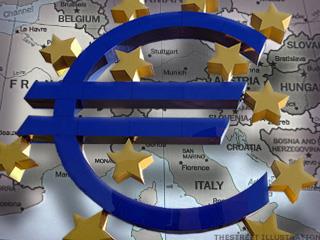by
Martin Hufner*
Almost exactly ten years ago, the Greek Prime Minister at the time admitted that his statisticians had “miscalculated.”
In October 2009, he confessed that his country’s budget deficit was not 3.7% of GDP, as it had been previously stated, but a staggering 12.7%.
In reality, at 15.1%, the deficit turned out to be even higher.
That was the beginning of the Greek crisis, which shook the euro to its foundations.
Only three months ago, Athens was released from the adjustment program and is now on its own again when seeking funding.
Handover to Italy
Now we have the Italian crisis. It is still relatively young. It came into being only in April of this year, following parliamentary elections which resulted in the formation of a government of two populist parties.
Interest rates on Italian government bonds have risen sharply since then, similar to Greece’s. It thus makes sense to compare the two crises. Is Italy the new Greece then? Is it just as bad? Could it take just as long to overcome?
At first glance, everything looks very different today – much more ominous. Witness the well-known U.S. economist Carmen Reinhart, a public debt specialist. She formulated it drastically last week in the Suddeutsche Zeitung: Compared to Italy, the crises in Greece, Portugal and Ireland together appear to her as “child stuff.”
That’s not quite true. Some things are worse, some less bad and some just different.
Worse, less bad or just different?
To begin with, Greece’s economy is much smaller. The Italian GDP is almost ten times the size of Greece’s. The total national debt of Italy is about eight times the size of the Greek one. Of course, this also multiplies the problems.
On the other hand, the level of transgressions is on quite a different scale. The Italians did not trick the statistics. Its targeted budget deficit, at 2.4%, is still within the Maastricht criteria. It’s only bigger than promised by the previous government. Measured by this, the problem is not so great today.
Also, the Greeks needed money at the time of the initiation of their crisis. Loans were coming due and they could not raise any more debt on the capital market. Italy has (still) no difficulty in refinancing its debt.
Rome’s problem is not about money, but about observing the rules of monetary union. The new government does not want to abide by those rules and refuses to correct its budget plan according to the wishes of Brussels. This makes the situation harder and easier at the same time.
The main challenge for Greece was the conditions under which creditors were willing to provide fresh money. Athens was thus forced into an extremely strict adjustment program.
In the case of Italy, nobody has yet called for such measures (at least not yet), although they seem necessary to solve the country’s real problems.
The Greek crisis reached beyond Europe
Athens at first turned to the International Monetary Fund in Washington. It was not until the IMF refused to step in on its own that it asked the Europeans for help. The EU partners then did so, together with the IMF.
In Italy, the IMF is not involved at all. It is a purely European matter. That does not make things easier, though. The process lacks a third party, which can propose helpful compromises from a broader international perspective.
A key difference between Greece and Italy is the financing structure of public debt. About 80% of Greece’s debt was held abroad. It thus had to take strong account of the interests of foreign creditors. Almost completely to the contrary, about 70% of Italy’s national debt is held by domestic creditors. This makes the solution easier in many ways.
Exit on the horizon?
In the case of both Greece and Italy, there was/is talk about exiting from the monetary union. In the Greek case, some of its European partners pushed for a withdrawal of the country from the euro. In Italy’s case, it was the government itself that raised the issue. In the meantime, it has backtracked.
This long list of differences underscores that the two crises have little in common. On the other hand, the Italian crisis is just at the beginning. Many questions are still open.
For example, it is not yet clear what kind of compromise Rome is looking for in terms of changing the rules of monetary union. Is there a feasible option that does not require a change in the governing EU treaties? Do majorities exist among the EU’s members to accommodate such Italian requests?
Finding out the answers to these questions can take a long time – although Brussels is known for its creativity and Italy for its flexibility.
But even if a solution is found for this, the problem of Italy’s rising interest rates remains. They are still bearable at a current level of 3.5%. Things would look differently once a level of 4.5% is reached.
From that level onwards, the write-downs of Italian banks on their government bond holdings would be so high that they would have problems with their capital ratios. The odds are that the 4.5% level can certainly be reached.
Then, the fiendishly difficult question of providing Italy with fresh money would also be on the table.
Although monetary union is now much better prepared for financial aid, one thing is for certain: No fresh money will be provided to Italy without appropriate adjustment programs.
If that happens, we would indeed have the same discussion as we did on Greece. Rome would be the new Athens.
*Former chief economist of Germany's HVB Group.
**First published in theglobalist.com




 By: N. Peter Kramer
By: N. Peter Kramer

